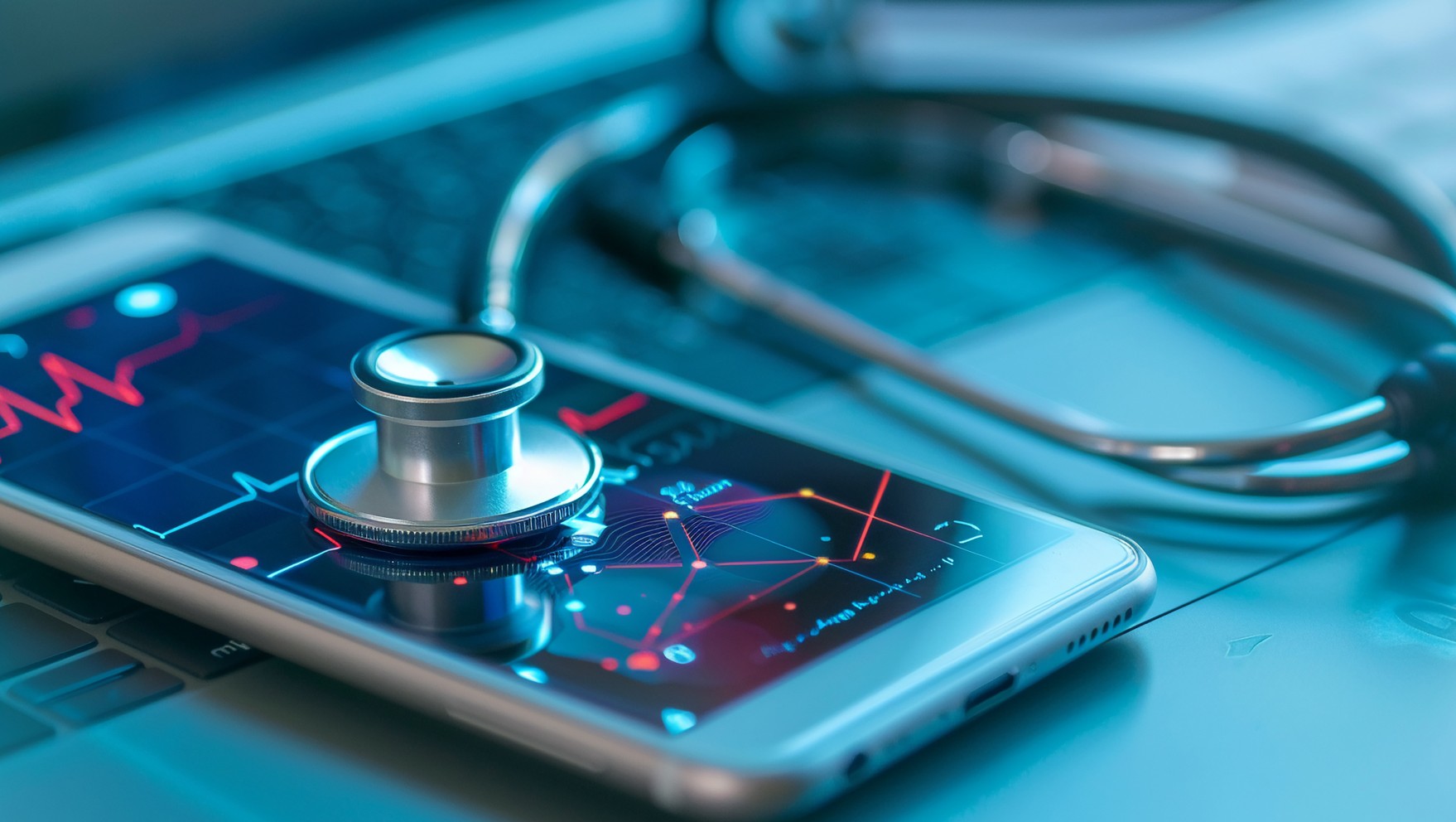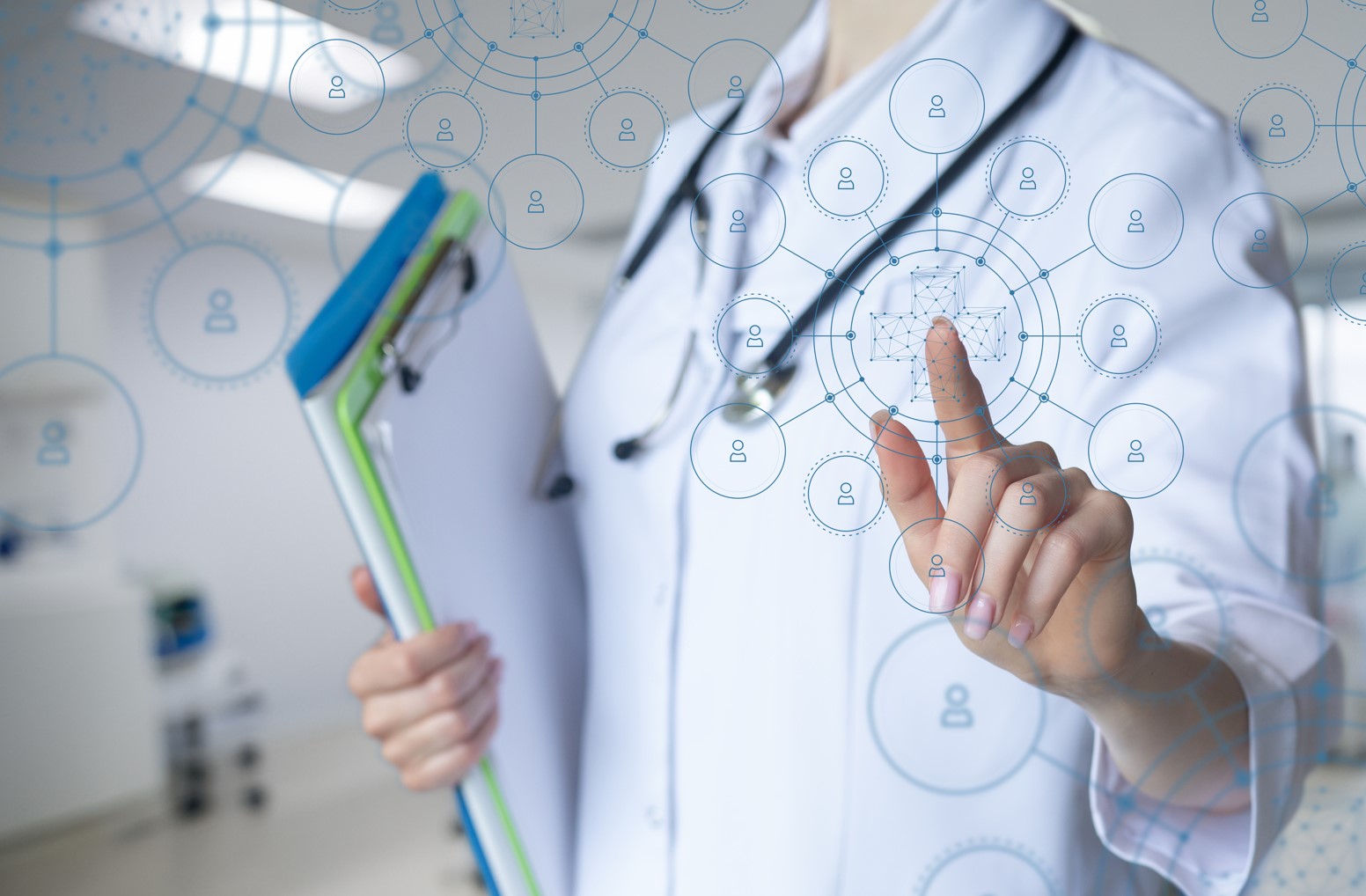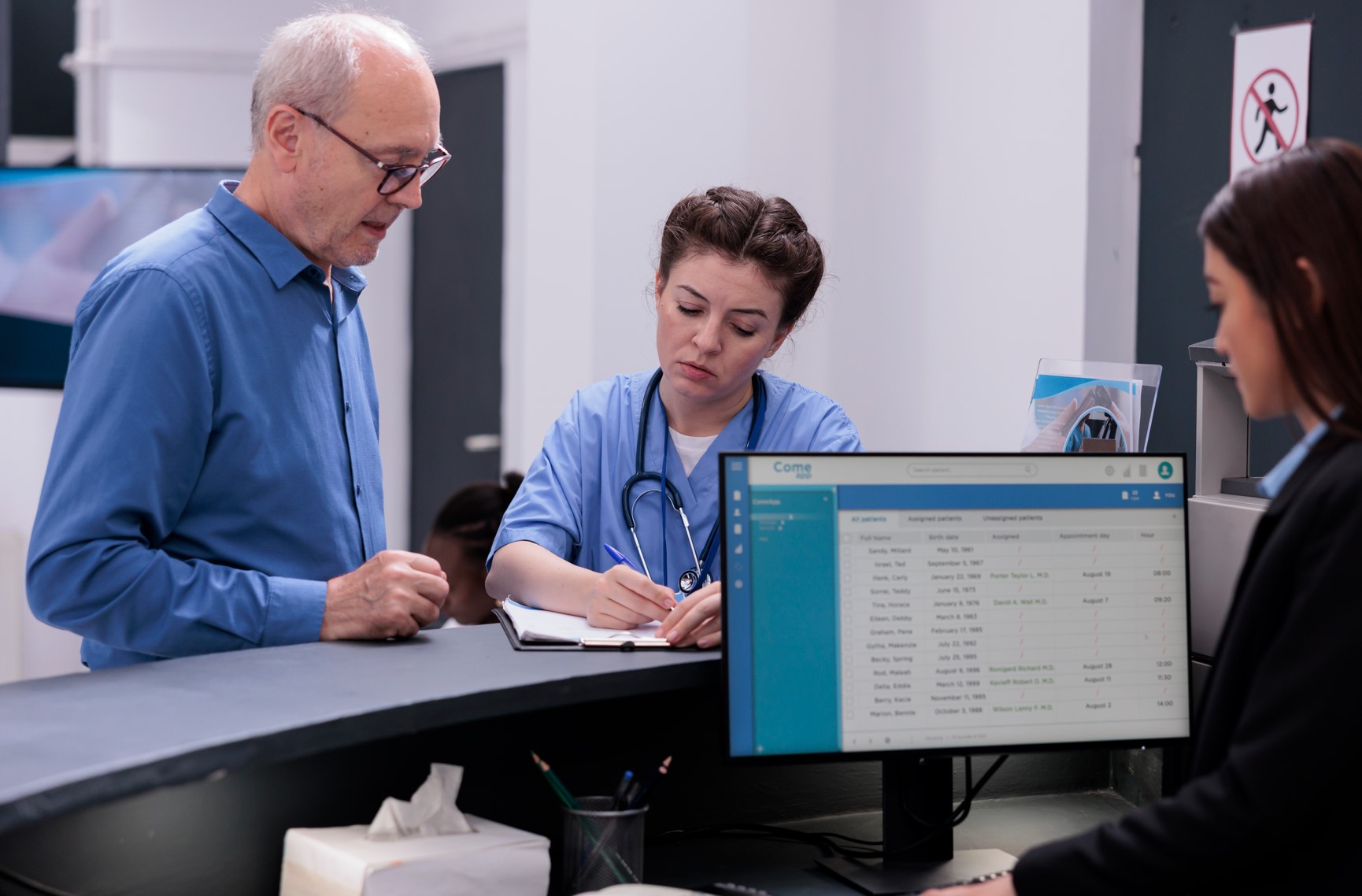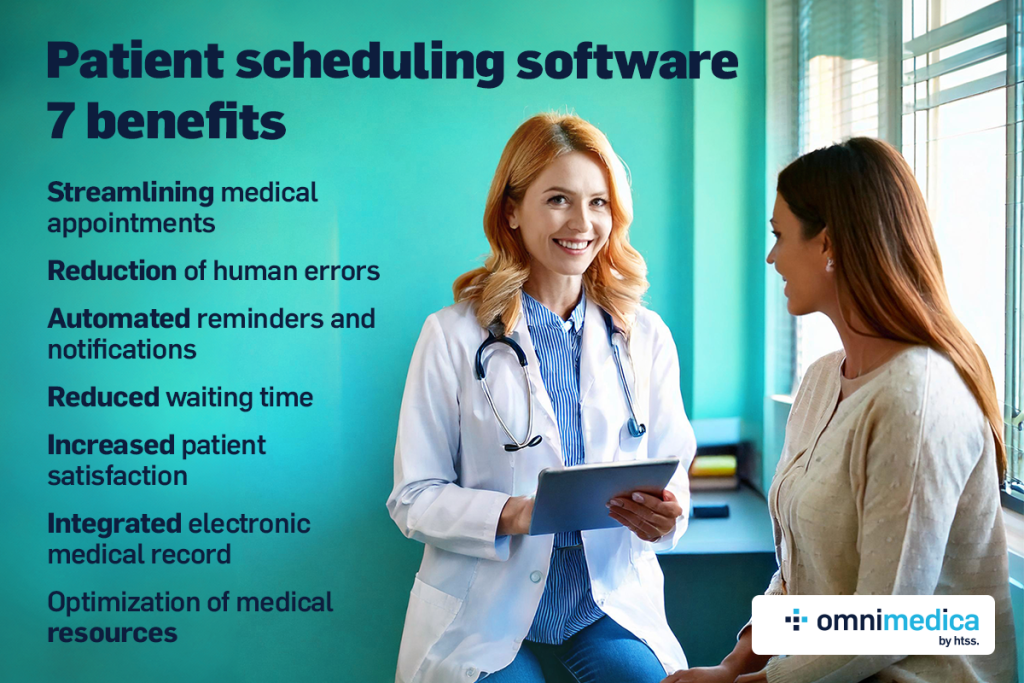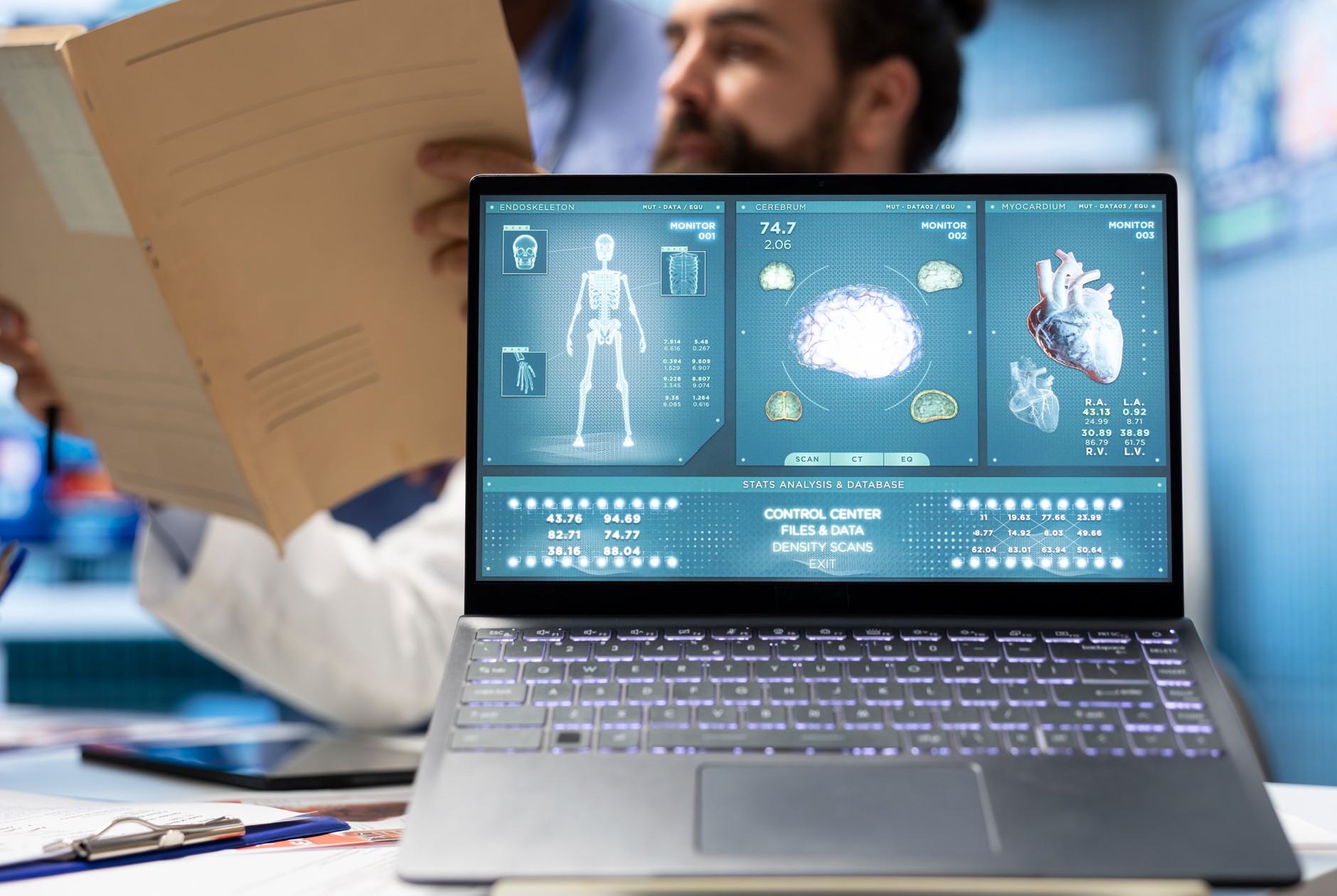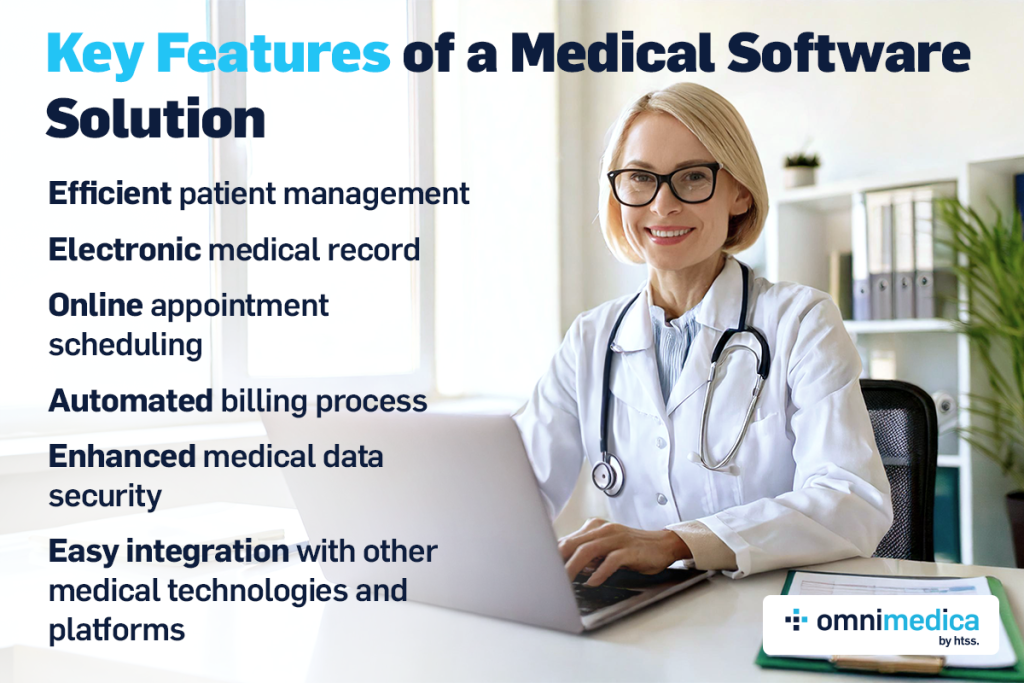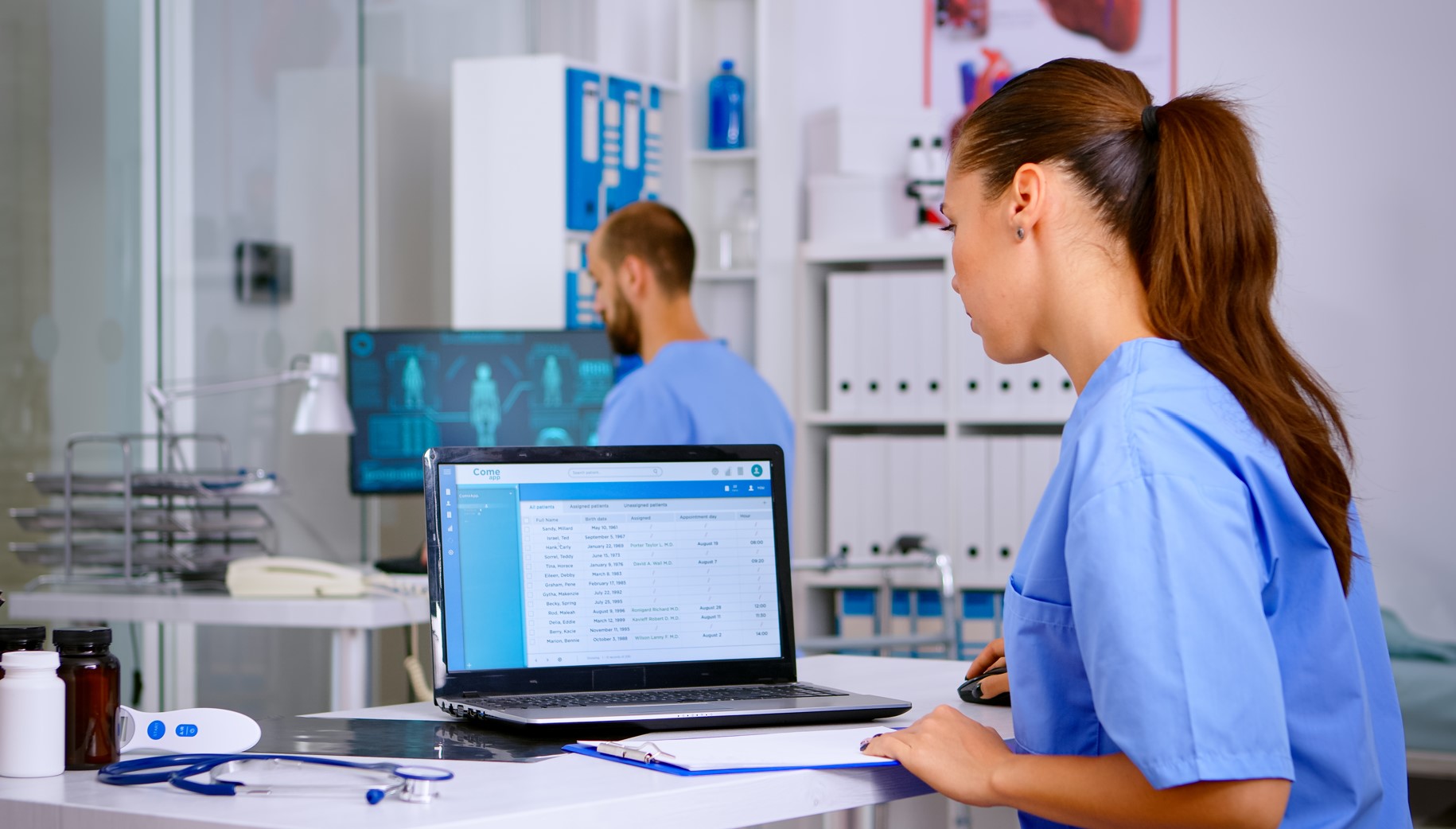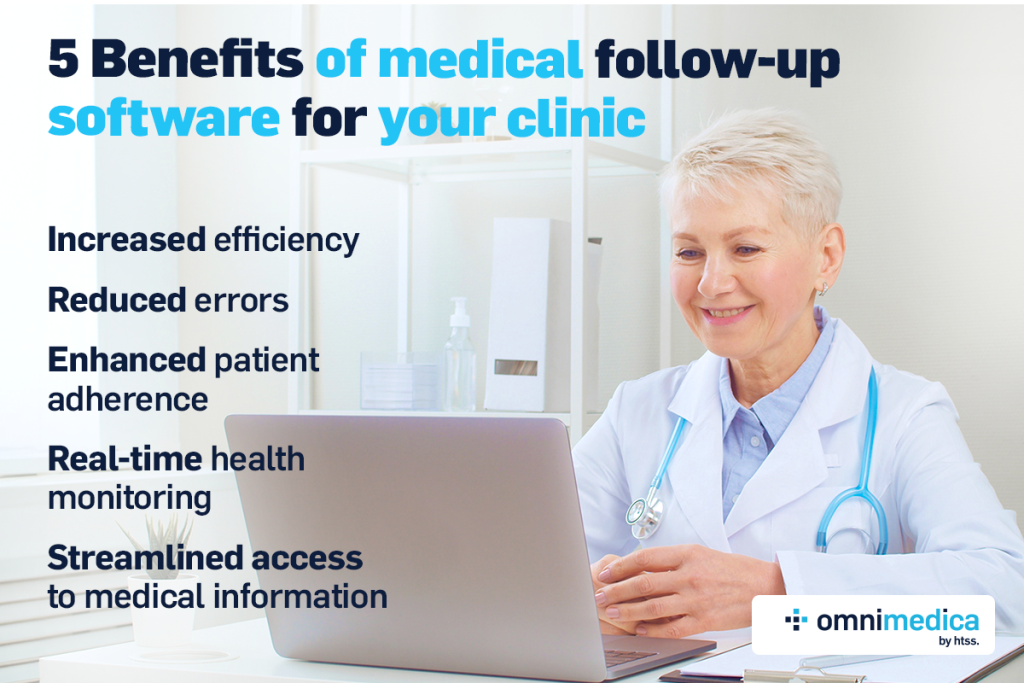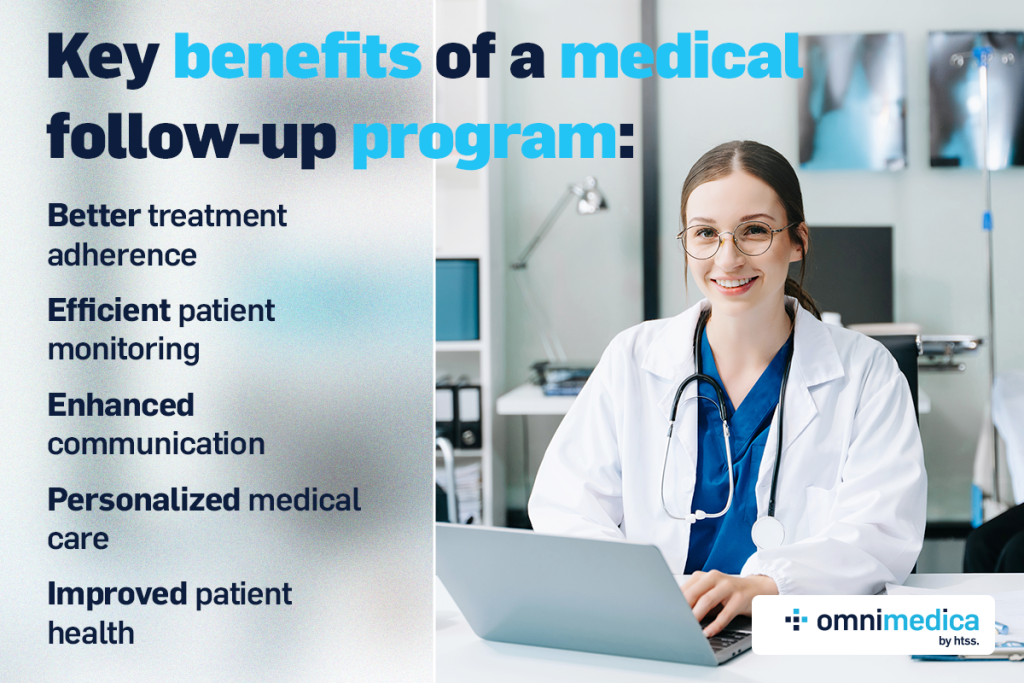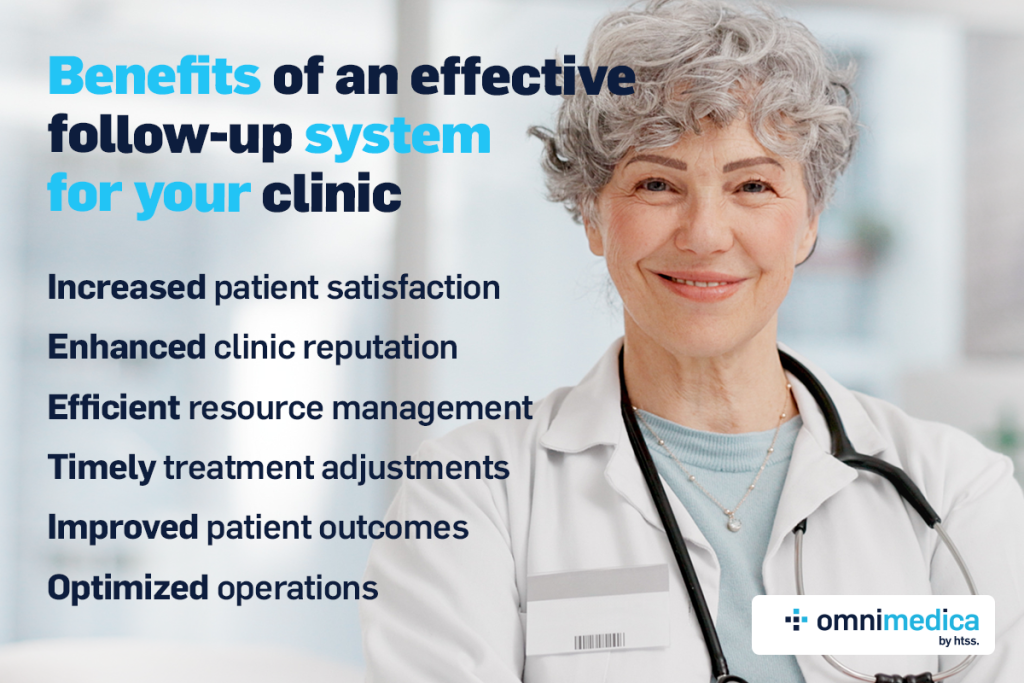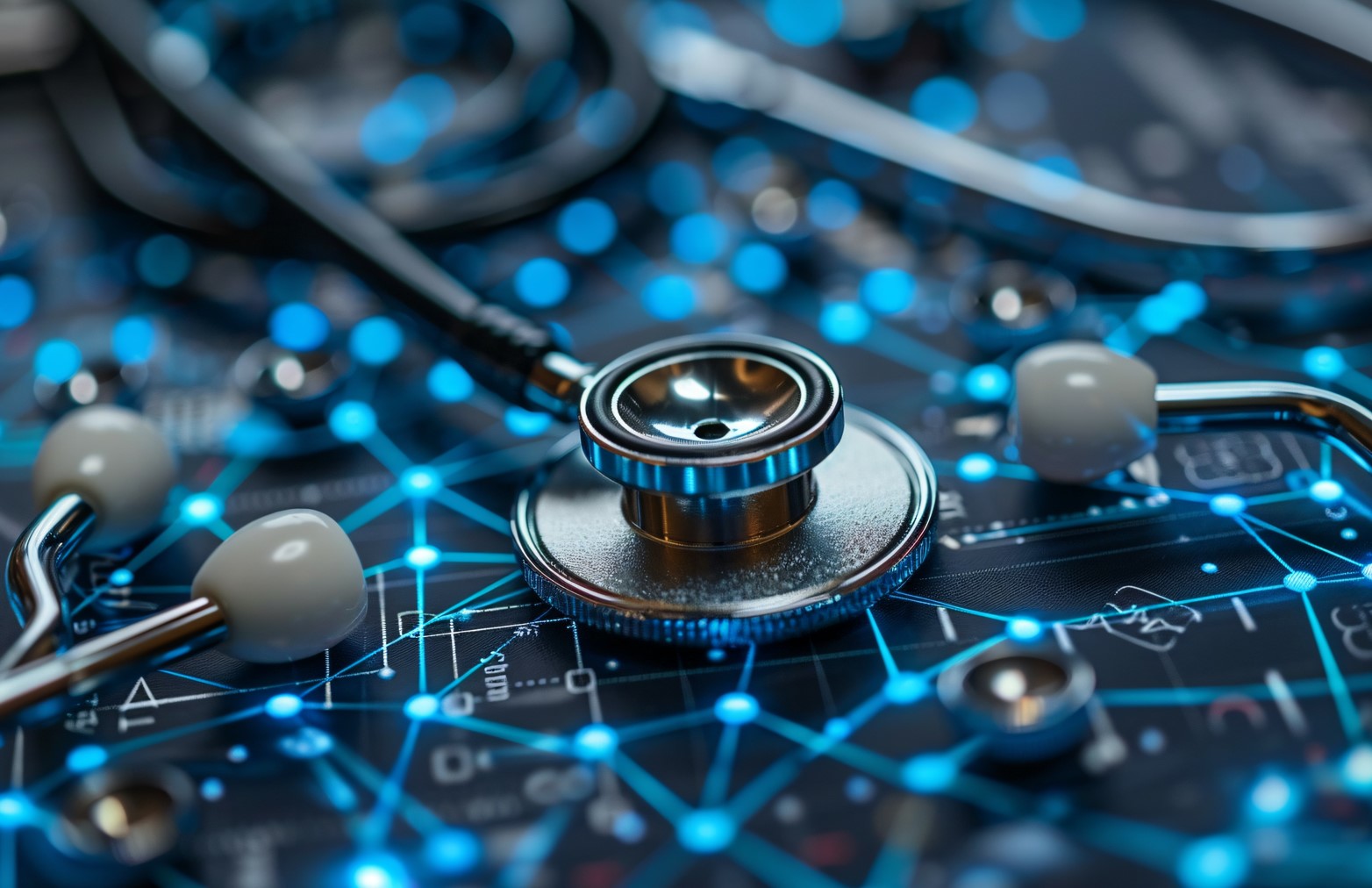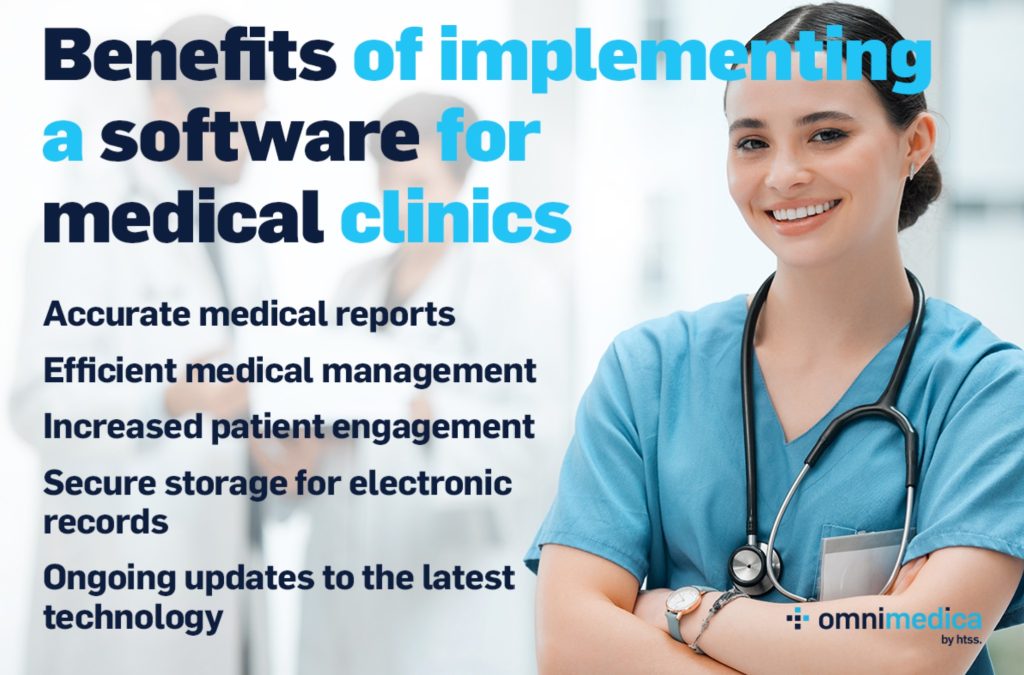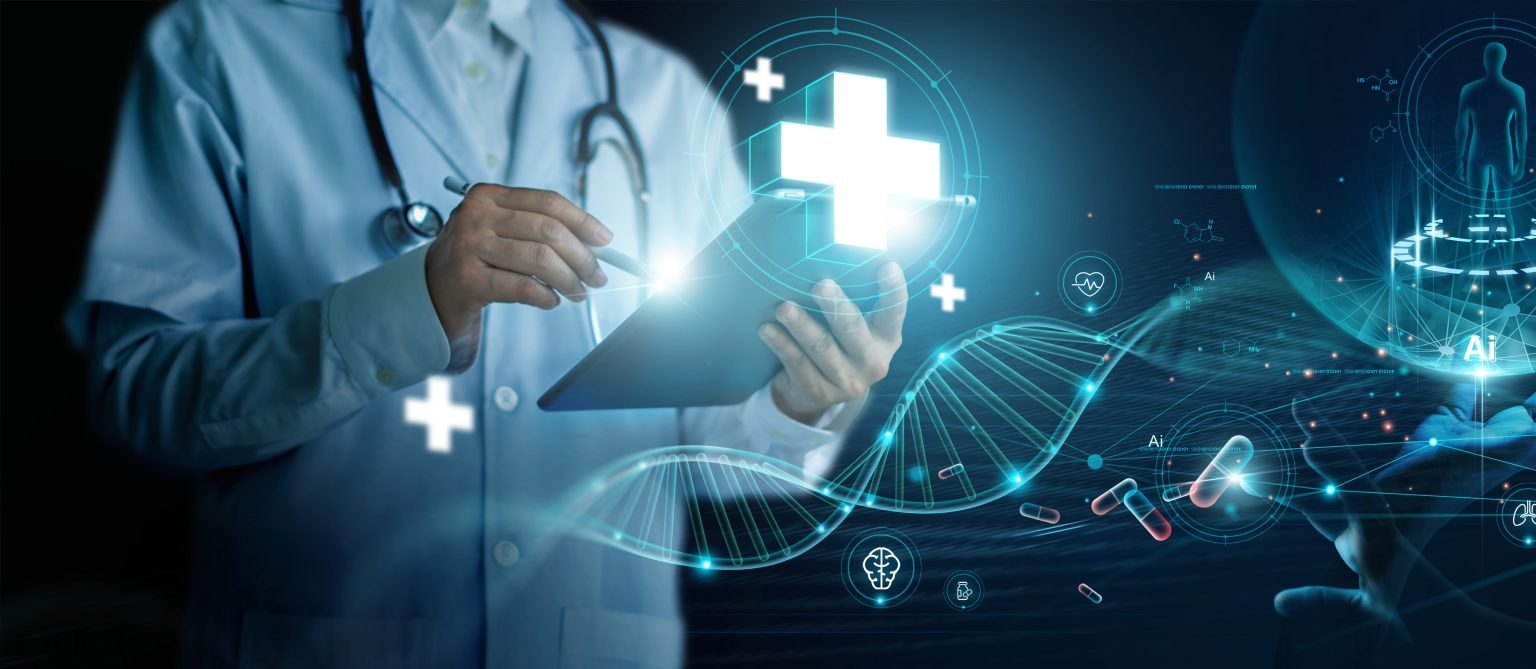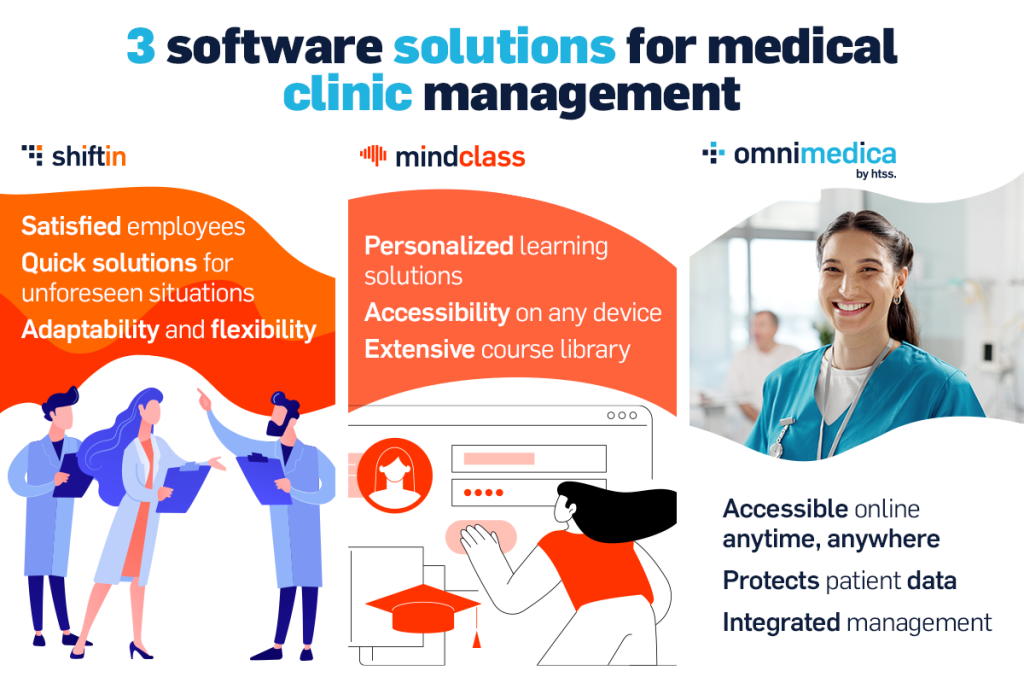- What is omnimedica?
- The importance of effective clinic management
- Key benefits of the omnimedica platform
- How omnimedica revolutionizes clinic management
- Effective methods for implementing omnimedica in your clinic
- Take your clinic to the next level with omnimedica
Following the initial consultation and treatment, efficient clinic management plays a vital role in maintaining the overall quality of care. A well-organized system ensures patients receive the necessary follow-up, appointments run smoothly and resources are used effectively. This is where omnimedica, a comprehensive clinic management platform, steps in to transform every aspect of medical clinic operations. From administrative efficiency to patient satisfaction, omnimedica helps clinics operate seamlessly while improving patient outcomes. Furthermore, we will be exploring the fundamentals of the platform, its benefits and how to implement it effectively in your clinic.
What is omnimedica?
omnimedica is an all-in-one platform that simplifies the management of medical clinics by integrating digital tools such as patient scheduling, billing, follow-up management and data analytics into a unified, complex system, that operates based on the concept of ecosystem. Designed to enable clinics to operate more efficiently, omnimedica ensures patients receive high-quality care while significantly reducing the administrative workload for healthcare professionals.
By leveraging advanced technology, omnimedica streamlines workflows, enhances data security, improves patient engagement and bridges the gap between medical staff and patients. Its primary goals include streamlining administrative tasks like billing and scheduling, improving overall patient satisfaction, ensuring compliance with data protection standards and supporting scalability to accommodate growing clinic needs.
The importance of effective clinic management
Effective clinic management extends beyond routine operations to directly impact patient care, satisfaction and overall clinic performance. Platforms such as omnimedica are of critical need, because they enhance the patient experience by reducing wait times, streamlining follow-ups and ensuring patients feel valued at every medical interaction. By seamlessly managing follow-up care and monitoring treatment progress, omnimedica improves continuity of care, preventing any patient from falling through the cracks. Resource optimization is another key benefit of the platform, as automating repetitive tasks frees up staff time, allowing medical professionals to focus on delivering exceptional care to their patients. In the long run, streamlined workflows, accurate data reporting and enhanced patient retention contribute to sustainable growth and long-term success for medical clinics.

Key benefits of the omnimedica platform
Improved workflow efficiency and enhanced patient experience as omnimedica automates time-consuming administrative tasks. This reduces manual errors and ensures staff focus on patient care rather than paperwork. Real time synchronization keeps schedules and data are updated seamlessly. Additionally, omnimedica greatly enhances the patient experience by providing tools that allow patients to book appointments, access medical records and receive reminders so that they feel in control of what is happening in the clinic. Follow-up communication becomes easier through secure messaging, phone calls or telemedicine options, ensuring patients feel cared for beyond the initial consultation, which increases satisfaction and trust.
Moreover, omnimedica integrates billing processes with patient records to ensure accurate invoicing and seamless claims processing. Automated reminders help reduce missed payments, while detailed financial reporting allows clinics to manage cash flow more effectively. Furthermore, omnimedica adheres to the highest standards of data protection, keeping all patient information confidential and compliant with regulations like HIPAA. Secure storage and access controls minimize the risk of data breaches. For growing clinics, omnimedica offers exceptional scalability, seamlessly supporting single practices or multi-location operations without compromising system performance. Its comprehensive reporting and analytics tools also empower clinics to track patient volumes, staff productivity and revenue growth, enabling informed decisions for continuous improvement.
How omnimedica revolutionizes clinic management
omnimedica revolutionizes clinic management by addressing every aspect of operations with a patient centered approach while optimizing workflows. It simplifies patient follow-up management through digital reminders and communication tools, ensuring patients stay on track with treatments, follow-up appointments and ongoing care. The integration of telemedicine allows clinics to conduct virtual consultations which can be paid by the patients in app, reducing the need for in-person visits and without compromising care quality. Intelligent appointment scheduling tools minimize no shows and calendar conflicts, enabling online booking for patient convenience and reducing staff workload. omnimedica’s resource management tools monitor medical supplies to prevent shortages and ensure efficient use of resources, while streamlined workflows enhance staff productivity, reduce burnout and improve clinic morale.
Effective methods for implementing omnimedica in your clinic
Effective implementation of omnimedica in your clinic starts with a patient centered mindset and a clear plan for clinic operations. Begin by assessing your current systems to identify gaps in areas like scheduling inefficiencies, follow-up communication or billing errors. Next, prioritize the features that best fit your clinic’s needs, such as : telemedicine, automated follow-ups or reporting tools. Ensure your staff is properly trained to use omnimedica’s user friendly platform by making onboarding quick and efficient. Implement the system gradually by starting with one module, such as appointment scheduling and then integrate additional features like follow-up management, billing or reporting. Finally, you can use omnimedica’s analytics tools to monitor performance, track progress and gather regular feedback from patients and staff to continuously improve workflows.
Take your clinic to the next level with omnimedica
omnimedica is the key to taking your clinic to the next level in today’s competitive healthcare landscape. With its robust clinic management system, omnimedica streamlines operations, enhances patient care and positions your clinic for long-term growth. By leveraging its innovative features, you can deliver high-quality care while maintaining operational efficiency. Embracing omnimedica allows you to leave outdated systems behind and step into the future of healthcare management. Choose omnimedica today to experience unmatched efficiency, patient satisfaction and business growth.

